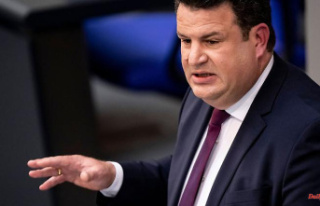On Independence Day, the central Ukrainian settlement of Chaplyne is devastated by attacks. Russia confirms the shelling of a train station and claims hundreds of Ukrainian soldiers were killed. The other side speaks of the death of children, among other things. The EU calls it "Russian missile terror".
The Russian Defense Ministry has confirmed rocket fire on a train station in the town of Chaplyne in central Ukraine. More than 200 Ukrainian soldiers assigned to fight in the Donbass were killed in the Iskander missile strike in the Dnepropetrovsk region on Wednesday. This was announced by the spokesman for the Russian Defense Ministry, Igor Konashenkov, in Moscow. However, there was no evidence to support the claim that so many soldiers died. Ukraine had previously spoken of 25 dead, including two children, and more than 30 injured.
The rocket hit the military part of the train station, Konashenkov claimed. Military technology was also destroyed. Kyiv, on the other hand, spoke of shelling inhabited areas. Ukrainian President Volodymyr Zelenskyi had strongly condemned the attack, which was carried out on the country's Independence Day.
According to Kiev, one of the children killed was an eleven-year-old boy who died under the rubble of a house. A six-year-old child died in a car fire near the train station, said the deputy head of the presidential office, Kyrylo Tymoshenko. The rescue and salvage work has now been completed.
The EU condemned the attack on the train station as "Russian rocket terror". EU foreign policy chief Josep Borrell spoke on Twitter of a "disgusting attack by Russia on civilians". "Those responsible for Russian rocket terror will be held accountable," he said.
The attack came on Wednesday exactly six months after the start of Russia's war of aggression against Ukraine. Because the date coincided with Ukraine's Independence Day, increased Russian attacks were feared.












